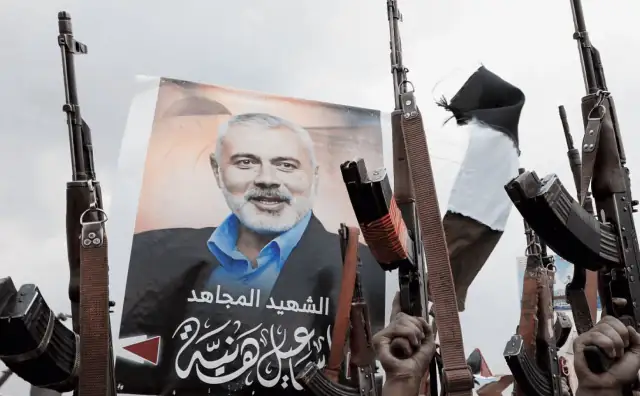In a significant development, Israeli Defense Minister Israel Katz publicly confirmed Israel’s involvement in the killing of Hamas leader Ismail Haniyeh.
The statement, delivered during a speech on Monday, highlights an intensification of Israel’s military operations in the region and serves as a direct warning to Houthi rebels in Yemen.
Katz asserted that Israel would adopt similar measures against the Houthis, targeting their leadership and infrastructure.
“We will strike [the Houthis’] strategic infrastructure and decapitate its leaders. Just as we did to Haniyeh, Sinwar, and Nasrallah in Tehran, Gaza, and Lebanon, we will do in Hodeidah and Sanaa,” Katz declared at a ceremony commemorating Israeli security officers.
Haniyeh’s death is part of a broader campaign of targeted killings. It follows the assassination of senior Hezbollah commander Fuad Shukr in Beirut on July 31 and Yahya Sinwar, Haniyeh’s successor as Hamas’ military chief, in southern Gaza on October 16.
Hezbollah leader Hassan Nasrallah was also reportedly killed in an Israeli operation, adding to the series of high-profile eliminations.
The confirmation of Haniyeh’s killing has drawn sharp reactions from Iran. The Islamic Revolutionary Guard Corps (IRGC) accused Israel and the United States of orchestrating the attack.
According to the IRGC, Haniyeh was killed by a short-range rocket carrying a seven-kilogram warhead, causing extensive destruction. The IRGC vowed retaliation, promising a “severe and decisive” response at a time and place of their choosing.
Israel’s Strategy and Regional Implications
Katz’s statements underscored Israel’s broader strategy of dismantling groups it perceives as threats to its security. The Defense Minister also confirmed Israel’s role in the collapse of the Assad regime in Syria.
He disclosed that opposition forces, led by Hayat Tahrir al-Sham (HTS), launched a November offensive from Idlib that culminated in the capture of Damascus on December 8.
This marked the end of the Assad family’s decades-long rule, with Katz emphasizing Israel’s contributions in striking the “axis of evil.”
This wave of eliminations and military interventions has heightened tensions in an already volatile region. Haniyeh’s assassination, in particular, has sparked strong rhetoric from Iran and its allies, accusing Israel of state terrorism.
Escalating Threats
The Houthis, backed by Iran, have increasingly become a focus of Israeli warnings. Katz’s mention of Hodeidah and Sanaa suggests a willingness to expand Israeli operations to Yemen, signaling a possible escalation.
Meanwhile, the IRGC’s threats of retaliation signal that the cycle of violence may intensify further. “The Zionist regime and its allies will face the consequences of their terrorist acts,” read an IRGC statement, pledging to avenge Haniyeh’s death.
As regional powers brace for potential fallout, analysts warn of a significant escalation in hostilities that could draw in multiple actors and destabilize the region further.
The situation underscores the fragility of the Middle East’s geopolitical landscape and the ongoing repercussions of targeted assassinations.

